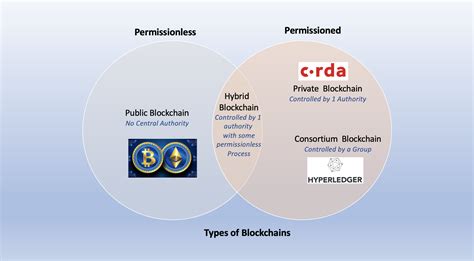“Private Blockchains: The Future of Secure Cryptocurrency Transactions”
Private Blockchains: The Future of Secure Cryptocurrency Transactions
As the world of cryptocurrencies continues to evolve, one technology that has garnered significant attention is private blockchains. In this article, we will explore the concept of private blockchains, their benefits, and how they are revolutionizing secure cryptocurrency transactions.
What are private blockchains?
Private blockchains refer to a type of blockchain that is not accessible to the public or anyone other than authorized parties. This means that only those with explicit permission from the network administrators (also known as miners) can access the private data stored on the blockchain. The private nature of these blockchains allows for the creation of secure, decentralized, and tamper-proof digital assets.
Advantages of Private Blockchains
Private blockchains offer several advantages over traditional public blockchains:
- Improved security: With private blockchains, transactions are more difficult to tamper with or alter without the knowledge of authorized parties. This makes them an attractive option for sensitive or high-value cryptocurrency exchanges.
- Improved user experience: By keeping transaction data confidential, users can enjoy a seamless and secure experience when interacting with their cryptocurrency wallets and exchanges.
- Increased transparency: Authorized users can monitor blockchain activity in real-time, providing valuable insights into network usage and potential security breaches.
- Cost savings: Private blockchains can reduce the costs associated with transaction fees and transaction processing times by using advanced cryptographic techniques.
Case studies: Real-world applications of private blockchains
Private blockchains have already started gaining traction in various industries:
- Decentralized finance (DeFi): Private blockchain platforms such as Polkadot, Solana, and Acala are used for DeFi applications such as lending, borrowing, and decentralized exchanges.
- Supply Chain Management: Private blockchain solutions such as IBM’s Blockchain Supply Chain improve the efficiency of supply chain operations by enabling real-time tracking and authentication of goods.
- Healthcare: Private blockchains are being explored for healthcare applications, including secure storage and sharing of medical data and real-time monitoring of patient records.
Challenges and Limitations
While private blockchains offer many benefits, there are also challenges to overcome:
- Regulatory Uncertainty

: The regulatory landscape surrounding private blockchains is still evolving, which can create uncertainty for users and developers.
- Infrastructure Requirements: Developing a secure and decentralized private blockchain requires significant investment in infrastructure, including high-performance computing hardware and advanced cryptography.
- Scalability: Private blockchains must be designed to efficiently scale while maintaining performance, which can be challenging due to increasing network complexity.
Conclusion
Private blockchains are poised to revolutionize secure cryptocurrency transactions by offering enhanced security, improved user experiences, and greater transparency. As the technology continues to evolve, we can expect to see greater adoption across various industries. While there are some challenges to overcome, the benefits of private blockchains make them an attractive option for anyone seeking a more secure and decentralized digital asset ecosystem.
Recommendations
If you are interested in exploring the possibilities of private blockchain technology, here are some recommendations:
- Research: Dive into the world of private blockchains and explore their applications, security features, and potential use cases.
2.




